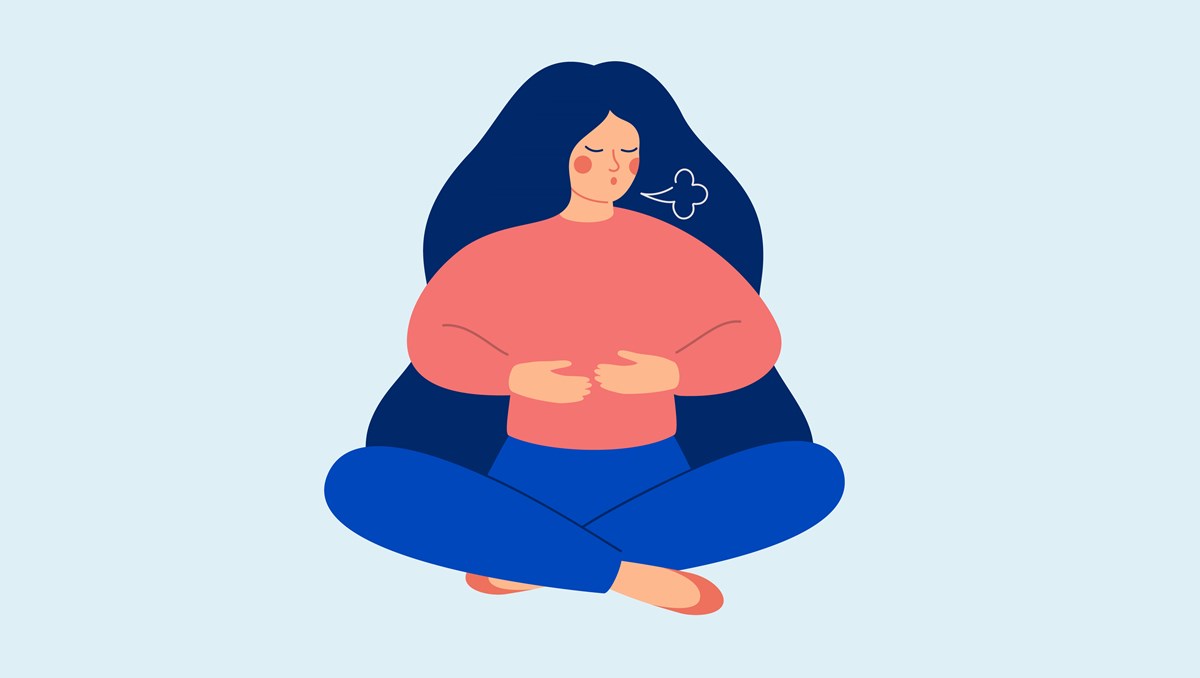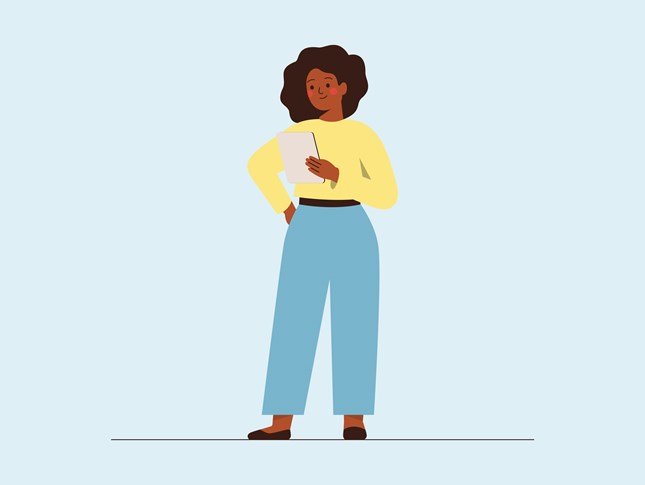Breathing exercises for beating stress and creating calm
Try these breathing exercises to maintain your composure in times of stress, anger and frustration.
Guides / 2 mins read

Breathing exercises reduce your fight or flights response by lowering stress hormones like cortisol and adrenaline. This allows your rational brain to take charge, so you can respond thoughtfully, rather than react impulsively.
For relaxation
- Sit or lie down and get comfy – but try not to fall asleep.
- Close your eyes and focus your attention on your breath. Let your chest and abdomen rise as you inhale and fall again as you exhale. Can you feel your breath in your lungs, or on the inside of your nostrils?
- Bring your full attention to your steady and rhythmic breathing.
- After a few moments, your attention may wander. You may start thinking or worrying about something else. That’s natural and totally ok. When it happens acknowledge the thought and let it float away. Return your focus on your breathing.
- Try this for two minutes to start with. Then build up to five minutes.
- When your time is up, take a second to notice how you feel. The physical sensations in your body and the activity in your mind.
- With practice you’ll find it easier, and be able to focus on your breath for longer. You may also find increased mental clarity, the more you do it.
- If you find it difficult, so not worry or be annoyed with yourself. Thank yourself for taking the time to try.
Another simple exercise, is box breathing:
- Breathe in for four seconds through your nose, counting the breath in your head
- Hold for four seconds
- Breathe out for four seconds, through your mouth, counting the breath in your head. This helps to regulate your nervous system and help you feel calm.
Breathing exercises reduce your fight or flight response by lowering stress hormones
For increased energy
- Sit up tall and relax your shoulders
- Keep your mouth closed and inhale rapidly through your nose with quick, short breaths; then exhale through your mouth
- Do this for 10 seconds
- Take a 15-30 second break and breathe normally
- Repeat several times
The benefits of breathing exercises
- Relieves anxiety, stress and tension in the body
- Can help reduce severity of or stop panic attacks
- Can help to steady a racing heartbeat
- Lowers the release of our stress hormones, adrenaline and cortisol
- Can oxygenate our blood, supporting brain function
- Helps to reengage our rational brain (pre frontal cortex) which we need to empathise, listen and ask questions
- Can reduce focus on our internal monologue, which can be a source of distress
- Can reduce and manage pain
Don’t wait for a crisis to call.
We’ll offer you immediate, emotional support.
08000 562 561

Our confidential grants service is here to help you manage money worries.
Everyone occasionally needs help. Our friendly, experienced team is here to support you.





















